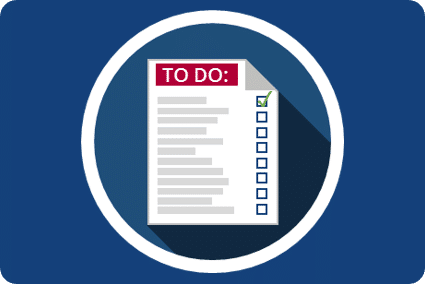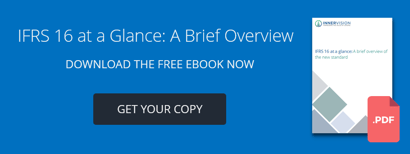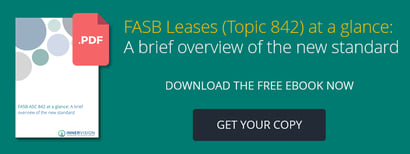Companies Struggling with New IFRS 16 and FASB Lease Accounting Preparations
Updated 12th May 2021 | 5 min read Published 21st June 2016

Recent research published by Ernst & Young has revealed that although 90% of companies are aware of the changes to lease accounting, only 7% have started an inventory of their current leases.
The report from the Financial Executives Research Foundation (a non-profit affiliate of Financial Executives International) and EY polled 125 senior executives about their companies’ plans and preparations for the upcoming changes to global lease accounting standards.
IFRS 16, published by the International Accounting Standards Board in January, and the Financial Accounting Standards Board’s lease accounting standard published in February (ASC 842) represent the largest change to lease accounting in 30 years. The new standards will see an approximated $2.8 trillion worth of lease commitments come onto balance sheets as operating leases will need to recognise assets and liabilities in financial statements – something they are currently exempt from under IAS 17 and FAS 13.
Nearly 60% of those polled said they expect either a moderate or significant impact on their balance sheets and their financial statement disclosures as a consequence of the new lease accounting standards. Similarly, nearly 75% of respondents revealed they expect to have significant or moderate difficulty developing policies, processes and internal controls, as well as getting through the first year audit.
The survey also revealed that only 11% have started to perform a readiness assessment and 50% have yet to begin any preparations. Added to the initial 7% who said their project team has begun to create an inventory of lease data, this highlights that most companies seem to be in the extremely early stages of their preparations.
With such a large percentage of respondents recognising the financial impacts of the new lease accounting regulations and the challenges in adapting to IFRS 16 and FASB’s standard, it is interesting to see that many business have yet to begin their preparations.
“Hearing from senior-level financial executives from more than 125 companies, we know that businesses are aware of the challenges they may face given the new leasing guidance.
“However, we hope this research will spur companies into action so they will be well educated and prepared to meet the challenges of implementing the new lease accounting standards. We stand ready to assist our members and the industry to educate themselves and put best practices into action today.“
Andrej Suskavcevic, FERF and FEI president and CEO
In order to develop a clear and effective plan to adopting the new standard and minimise the financial impact, businesses need to understand and compare how accounting and financial metrics will differ under the new IFRS and FASB lease accounting standards.
This information can only be accurately acquired by reviewing your business’s current lease agreements. For companies who lease large volumes, gaining accurate and complete data on every single lease agreement will be a time and resource consuming task, particularly if they are part of the 29% that currently have no system for tracking leases.
The majority of survey respondents said they rely on spreadsheets to track and account for leases, but more than 80% still evaluating technology options. With leading accounting experts warning about the inefficiencies of an excel-based, spreadsheet accounting method for compliance to the new lease accounting standards, assessing the options for lease accounting software appears to be a wise decision.
83% of respondents said they have not started to create a budget for meeting the new standard and only 5% have budgeted more than $500,000 over the next three years to implement the new standard. 56% of respondents are planning to adopt the new lease accounting standards as of the effective date
The results of the research highlight a current lack in action and a need for businesses to start the data collection process now so as to define what impact IFRS 16 and FASB’s lease accounting standard will have on their business.
“Preparing for the new lease accounting standard should be a priority for companies.
“Companies who have started to assess their capabilities are gaining clarity on how the standards will impact their financial operations and what they need to do around data, process and technology.“
Anastasia Economos, EY Americas lease accounting change leader, a partner at Ernst & Young LLP Financial Accounting Advisory Services.
The new lease accounting standards are set to have an impact on key metrics such as EBITDA, total outstanding liabilities, financial statement disclosures and bank covenants. It is vital that businesses are aware of these impacts in these early stages so they can take the necessary actions to assure shareholders, investors and other parties involved in financial agreements.
Lease accounting software and a centralised electronic system for managing and reporting on the lease data is an invaluable solution to this requirement. Organisations should be taking this time to begin collecting an inventory of all their active leases, filling in the missing gaps of lease data (such as borrowing rates, IRR, split of lease costs etc.) and reviewing the preparations they need to make sure they are not only compliant, but the transition is manageable and cost effective.
It is clear that, by now, most businesses who need to know about the upcoming change to lease accounting have been made aware; in fact 33% revealed they have closely followed the FASB and IASB board activities.
In contrast, businesses seem to be putting off their preparations without knowing the exact impact the standards will have on their business. In order to gain a firm and accurate understanding and therefore confidently develop a impact assessment, companies need to conduct a comparative examination of their leases under existing lease accounting standards as well as the upcoming new ones. Only by gathering all their active lease data and assessing this comparison can businesses highlight the true impact and make further decisions based on these facts.
If your company is yet to run this comparison, now is the time to act. Innervision’s leasing experts are on hand to help guide your business through the transition to new lease accounting standards. Innervision’s specialised lease accounting software, LOIS, features a unique comparison report, allowing you to see exactly how your lease accounting will differ and the impact this will have on your financial metrics based on your lease data. To find out more and see LOIS in action, follow this link and talk to one of our experts.



